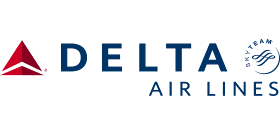 Delta’s Atlanta–Marrakech Nonstop Opens New North American Connections for Africa
Delta’s Atlanta–Marrakech Nonstop Opens New North American Connections for Africa
The launch of Delta Air Lines’ nonstop service between Atlanta and Marrakesh Menara Airport marks a pivotal moment for transatlantic travel, offering a significant boost in connectivity between the United States and North Africa. This direct link, inaugurated in late October 2025, sets Marrakesh firmly on the map as a key international gateway and presents new commercial and strategic opportunities for Africa’s travel sector.
Operated by Boeing 767-400 aircraft on a three-times-weekly schedule, the route provides seamless access from Hartsfield-Jackson Atlanta International Airport—the world’s busiest aviation hub—to the heart of Morocco’s tourism capital. This initiative not only represents Delta’s first direct connection from Atlanta to Morocco but also establishes a vital new corridor for travelers across sub-Saharan Africa seeking to expand their U.S. market reach or facilitate transatlantic partnerships.
The debut of the Atlanta–Marrakech service is the result of coordinated efforts by Morocco’s tourism authorities and Delta’s strategic planning team. The Moroccan National Tourism Office has invested heavily in North American outreach during 2025, orchestrating roadshows and high-profile campaigns to position Morocco as a top-tier destination for American travelers. This new air link is the centerpiece of those efforts, providing a streamlined and attractive alternative for U.S.-based leisure, business, and MICE (Meetings, Incentives, Conferences, and Exhibitions) travelers bound for Africa.
For African tourism professionals, operators, and hospitality providers, the implications are immediate and far-reaching. The Atlanta hub connects to more than 125 U.S. cities through Delta’s extensive domestic network, allowing for easy onward travel to Marrakesh from virtually every major American source market. This expanded connectivity is expected to drive interest in North Africa and encourage the development of new tour packages, bespoke itineraries, and business partnerships that leverage the improved access.
Delta’s choice of the Boeing 767-400 for this service underscores the route’s long-haul and premium focus. The twin-aisle aircraft offers a robust mix of range, capacity, and comfort, appealing to both high-end and value-oriented travelers. While Delta has a reputation for premium cabin enhancements on its intercontinental routes, details of the specific configuration on the Atlanta–Marrakech rotation should be confirmed via official channels. Still, the presence of a widebody aircraft is a clear signal that the airline anticipates strong demand, particularly during peak travel seasons and major international events.
The introduction of this nonstop route is more than just a logistical development; it represents a deliberate strategy to deepen ties between Africa and North America at a time when global travel demand is rebounding. By offering a direct flight, Delta eliminates the need for multiple connections through European gateways, significantly reducing total travel time and simplifying the journey for U.S. visitors. This is especially valuable for group travel, MICE events, and high-value leisure segments, where convenience and itinerary flexibility are crucial selling points.
The timing of the launch—at the start of the 2025/26 winter schedule—positions Marrakesh as an ideal escape for American travelers seeking warmth, culture, and adventure. For African operators, this creates an opening to develop joint marketing initiatives, cross-promotions, and bundled products that highlight Marrakesh as both a standalone destination and a gateway to broader regional exploration. The route’s three-times-weekly frequency also allows for efficient rotation of group tours, conference delegates, and seasonal leisure travelers.
From a commercial perspective, the direct link supports dynamic pricing and flexible scheduling, enabling African partners to respond to market trends and traveler preferences in real time. However, the ultimate success of the route will depend on sustained marketing, competitive fares, and the ability of local operators to convert new air access into real bookings. The Moroccan tourism office’s ongoing North American roadshows are designed to capitalize on the increased visibility, targeting travel planners, corporate clients, and tour operators throughout the U.S. and Canada.
Delta’s expansion into African markets is part of a broader network strategy for 2025, with additional seasonal and hub-based links—such as those to Accra—reflecting a commitment to tapping winter demand and building long-term traffic flows across the Atlantic. For travel professionals in sub-Saharan Africa, this development signals an opportunity to rethink outbound and inbound programs, forge new alliances, and position African destinations as accessible, attractive, and competitive options for international travelers.
Industry partners are encouraged to stay informed about operational details, including flight numbers, schedules, and aircraft configurations, as these may evolve over the season. With the route’s initial three-times-weekly cadence, planners should factor in connection windows, aircraft turnaround times, and potential seasonal adjustments when crafting multi-stop itineraries or group programs that feature Marrakesh as a core component.
The launch of Delta’s Atlanta–Marrakech nonstop is not just a milestone for Moroccan tourism—it is a catalyst for Africa’s broader engagement with North America. The increased connectivity offers immediate advantages for tour operators, hoteliers, DMCs, and event planners throughout the continent. By leveraging this new transatlantic bridge, African businesses can unlock new markets, diversify their offerings, and participate more actively in the global tourism economy.
Looking ahead, the route’s long-term impact will depend on the ability of Africa’s tourism sector to innovate, collaborate, and deliver compelling experiences that meet the expectations of a new wave of U.S. travelers. As demand patterns shift and global competition intensifies, those who adapt quickly and embrace partnership-driven growth will be best positioned to benefit from the new era of direct air access between Africa and North America.
